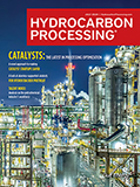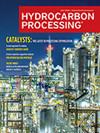Pakistan bans use of open-loop scrubbers to clean fuel in local waters
ISLAMABAD (Reuters) - Pakistan has prohibited the use of open-loop scrubbers by ships in its waters, the latest country to tighten restrictions on the use of the cleaning devices which strip sulphur from marine fuel and empty the residue in the sea, a regulatory note showed.
Since the start of this year, United Nations shipping agency the International Maritime Organization (IMO) has banned ships from using fuels with a sulphur content above 0.5%, compared with 3.5% previously, in the biggest shake up for the oil and shipping industries in decades.
The regulations are aimed at improving human health by reducing air pollution.
Only ships fitted with sulphur-cleaning devices known as scrubbers will be allowed to continue burning high-sulphur fuel. Ship owners can also opt for other sources of cleaner fuel such as liquefied natural gas (LNG).
But some ports have banned one type of scrubber, the open-loop version which empties washwater residues into the sea, which has added to unexpected costs for shipping companies that have bought the devices at a cost of over $1 million each.
A circular note date Jan. 7 and sent on Wednesday to Reuters from Pakistan’s ports and shipping ministry said the discharge of washwater from open-loop scrubbers was prohibited in Pakistani port environs.
The circular said vessels fitted with open-loop scrubbers would need to switch over to compliant fuel.
“It would be advisable to switch over either to closed-loop mode or to compliant fuel instead well in advance of the vessel’s arrival at the port areas,” the circular said. The ministry did not immediately provide further comment.
Malaysia, Singapore and Fujairah in the United Arab Emirates, all marine refueling hubs, have banned the use of open-loop scrubbers. China is also set to extend a ban on scrubber discharge to more coastal regions.
Users of the devices argue that there is no conclusive scientific research showing that discharges from open loop scrubbers - which wash out the sulphur - cause environmental harm. Analysts warn of the possibility of tighter restrictions, which would add to the costs of those investing in them.
The IMO has encouraged further study into the impact of scrubbers on the environment. (Reporting by Gibran Peshimam and Jonathan Saul; Editing by Elaine Hardcastle)






Comments